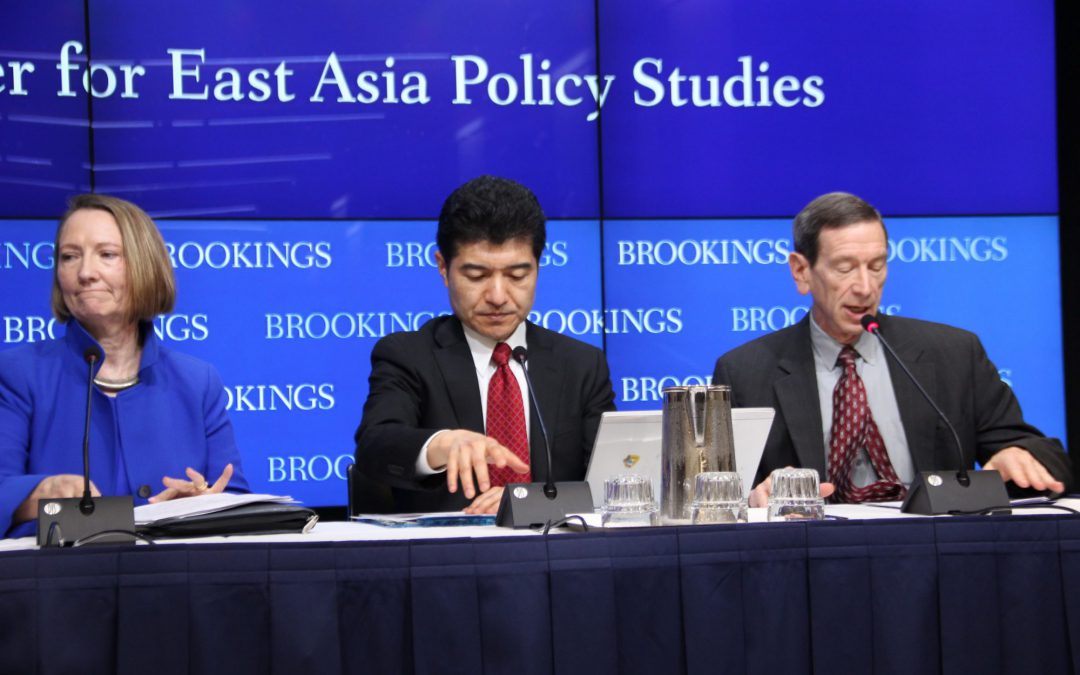China is uniquely positioned to apply pressure on Kim Jong-Un that could reduce tensions on the Korean peninsula. Yet China has been lukewarm in its efforts to subdue a nuclearized North Korea, frustrating the U.S. This problem may come down to a fundamental difference in cultural values between the Asian superpower and its Western counterpart, according to experts.
As its largest trading partner and only major ally, China wields significant leverage over North Korea, but it has applied inconsistent pressure on North Korea. It has enforced United Nations sanctions by barring North Korean citizens in China from providing aid to their countrymen over the border. But the Wall Street Journal reported that it has not done the same for its own nationals providing aid to North Korea.
Recent events have highlighted the split between the two superpowers on North Korea. China reacted angrily to new unilateral sanctions against North Korea that President Donald Trump announced Feb 23, though it said it has supported and will continue to support sanctions passed through the U.N. Two Chinese shipping firms were included in the sanctions, along with other entities based in China. In a news conference in May, Chinese spokesperson Lu Kang offered typically anodyne language regarding the crisis.
“We stay committed to the goal of denuclearization, upholding peace and stability on the peninsula,” he said.
Beijing and Washington prioritize these goals differently, according to experts. In China, “upholding peace and stability” may mean tolerating a nuclear North Korea, at least in the short term. Experts said that this is caused by underlying differences in cultural values—China is not interested in a solution that would either destabilize the region or bring Western ideas into its sphere of influence.
Take gun violence as an example. The recent school shooting in Parkland, Florida and subsequent fight over the Second Amendment has brought to the forefront not only the dedication of U.S. political culture to individual rights, but what many people in China view as a “political paralysis” or failure of democracy, according to Cynthia Watson, a professor at the National War College.
“[China] really cannot understand why the U.S. puts such an emphasis on individual rights allowing people to have guns, for example,” Watson said. “China would never do that because it would simply undermine the stability of the system.”
The communist party in China credits stability in the region as the reason it has been able to experience unparalleled growth and development over the past 40 years. Since initiating market reforms in 1978, 800 million Chinese have escaped poverty, according to the World Bank.
“I think we just believed that as a result of the economic transformation, Western ideas would also filter into China,” Watson said. “What’s happened instead is that I think they adopted many of our economic ideas, but they never abandoned the Chinese cultural experience of trying to retain order in society.”
This order is threatened by the potential for chaos on the Korea peninsula. China doesn’t want to push the envelope when it comes to North Korea because they worry that Kim Jong-Un will feel threatened enough to take action that would undermine security in the region.
“Although they don’t like a reckless, unpredictable North Korean regime, I think many Chinese strategists believe that that current status quo is better for them than some other potential outcomes, one of which would put American forces right on their doorstep,” said Jamie Fly, who worked for the National Security Council under the Bush administration and is currently a senior fellow at the German Marshall Fund.
The communist party’s efforts to spur nationalist sentiment might actually undermine their position should the Chinese people feel as though Chinese leadership was unable to command the respect of the U.S. and avoid a destabilization of the region.
“I think the Chinese leadership feel boxed in by the American military presence in Asia,” Fly said. “The last thing China would like to see out of all of this is a unified Korea that is a military ally of the U.S., that has U.S. forces on its territory which could go right up to Chinese territory if the Koreans are eventually unified.”
The party wants to be able to “turn outsiders away” because many nationalists look at the presence of the U.S. in Asia. Chinese nationalists worry that the U.S. is seeking to contain China the way it contained the Soviet Union during the Cold War, according to Watson.
To this end, China has used North Korea as a buffer state. China uses its alliance with North Korea to limit the reach of the U.S., giving China the space it wants to grow its geopolitical influence. Should conflict break out on the Korean peninsula, China worries that a potential reunification under South Korean leadership would bring a U.S. ally right to its border.
“China’s apparent decision to start playing the great power geopolitical game on the Korean peninsula has made it difficult for South Korea, the U.S. and Japan to walk more closely together on defense,” Narushige Michishita said Feb 22 at a Brookings Institution event. Michishita is a professor at the National Graduate Institute for Policy Studies in Tokyo.
Although South Korea largely relies on the U.S. for security, it is heavily dependent on China for trade. China uses this relationship as leverage to pressure South Korea on security measures, according to Michishita.
“Faced with massive pressure from China, South Korea has passively pledged to China that it will not allow the U.S. to deploy additional missile defense [batteries] in South Korea,” Michishita said.


